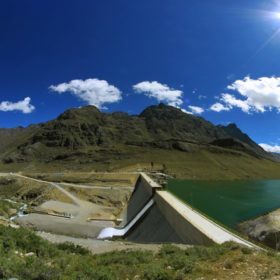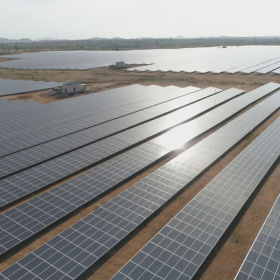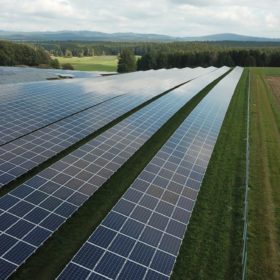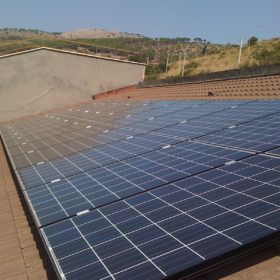Gujarat extends bidding for 110 MW grid-connected solar and floats new 210 MW tender
Developers now have until September 23 to lodge bids for the 110 MW procurement round and can toss their hat into the ring for a new tender in the district of Jamnagar which closes on October 5.
NREL scientists estimate global potential of hydro-linked floating PV at up to 7.5 TW
The U.S. based researchers said linking solar with hydro in a full hybrid system configuration may result – at best – in the deployment of 7,593 GW for an estimated annual power generation of 10,616 TWh and a 20% reservoir coverage. And combining solar with hydro in this way brings further benefits, including improved system operation at different time scales, more opportunities for storage thanks to pumped hydro, increased utilization rates of transmission lines, reduced PV curtailment, and lower interconnection costs and water evaporation.
Mahindra & Mahindra cancels pact to sell solar arm
The company cited delay in sale completion of Neo Solren as the reason for the pact’s cancellation with CLP India. The subsidiary was formed to set up and operate solar plants in Telangana.
Green finance flows just one-tenth of the actual requirement
The tracked green finance for climate mitigation was an average Rs 124 thousand crore (US$19 billion) for FY 2017 and FY 2018, representing only about 10% of what the country required.
SECI invites global bids for 100 MW solar with storage in Chattisgarh
The ground-mounted, grid-connected project—to be developed in turnkey mode—shall be awarded through international competitive bidding followed by reverse auction. Bidding closes on October 27.
Local content requirement costs for large-scale PV in India
A UK-German research team analyzed solar auctions in India between 2014 and 2017 and has determined that local content requirements have driven up PV costs by an average of 6% per kilowatt-hour.
India could add 6,490 electric buses in next two years
The country’s electric bus market has gained momentum owing to aggressive government push through FAME India [Faster Adoption and Manufacturing of (Hybrid &) Electric Vehicles in India] scheme and increased interest from global investors.
India’s renewable energy capacity needs to grow at 16% CAGR to reach 450 GW by 2030
As of June 30, the country installed 90.5 GW of renewable energy capacity from solar (utility-scale and rooftop), wind and biomass resources.
NREL scientists encourage ‘optimal’ PV curtailment
Solar curtailment might become a valuable aspect of future PV deployment, particularly if grid operators start focusing on ‘curtailment management’ instead of ‘curtailment prevention.’ Management would include measures such as flexible generation, storage, load flexibility, and regional coordination.
Fourth Partner Energy bags 4.8 MW rooftop solar project for Titagarh Wagons
Solar panels at the railway coach manufacturer’s three factories in West Bengal will cover approximately 50,000 sq m of roof space and generate around a quarter of the power used by the company each year.














